With contemporary African art making waves globally and drawing attention from local and international art collectors and critics alike, we’ve rounded up ten exciting contemporary South African artists to watch.
We drew up the list from work featured on South Africa’s leading auction house for fine art Strauss & Co‘s first ever live auction dedicated entirely to contemporary art. This landmark auction was held on February 17, 2018, at Cape Town’s V&A Waterfront and marked an exciting development in South Africa’s burgeoning contemporary art scene.
William Kentridge
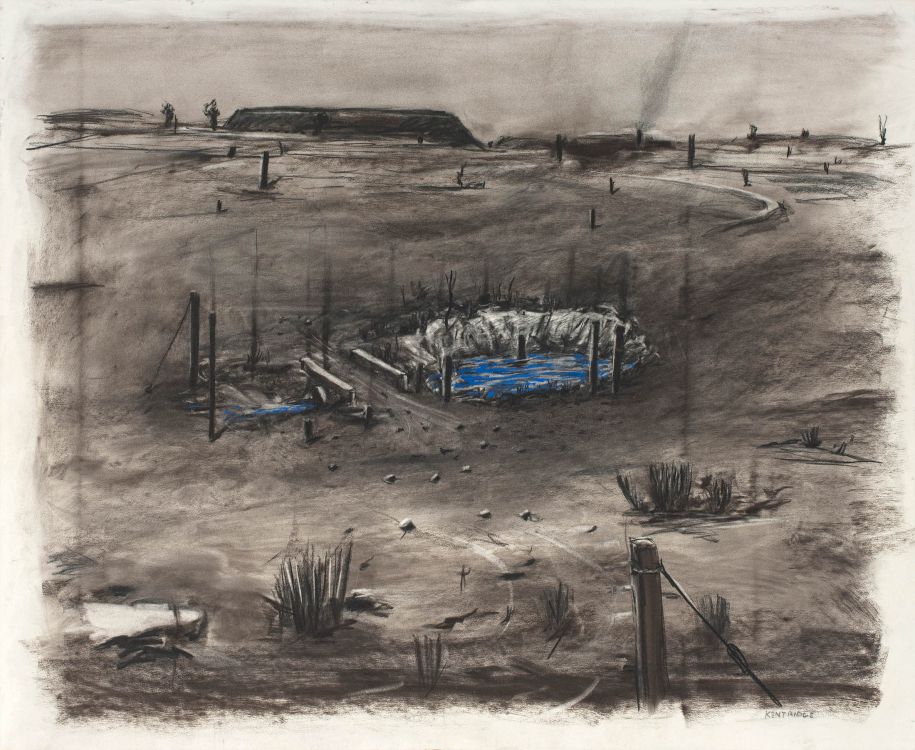
South Africa’s most famous contemporary artist is a global star. Working in a variety of mediums including print, painting, animation, sculpture, installation and film, his artworks have been exhibited at such prestigious institutions as New York’s MOMA and the Louvre in Paris, while his involvement in the theatre world has also seen him directing opera productions for the New York Met. When not collaborating on major international projects and exhibiting abroad, Kentridge can just as often be found at home in Joburg at the Centre For The Less Good Idea, the collaborative arts space that he launched in the Maboneng Precinct in early 2017.
Penny Siopis
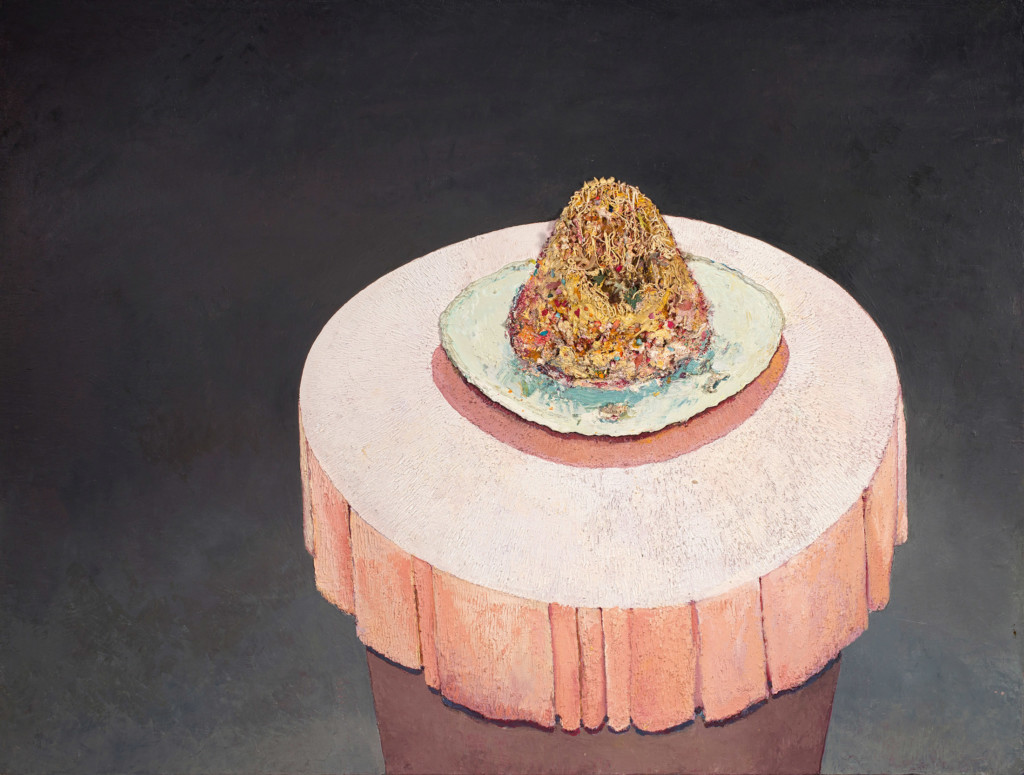
One of South Africa’s most renowned female artists, Siopis is primarily interested in what she calls the ‘poetics of vulnerability’, an interest which manifests itself in bold explorations of history, memory and migration as well as shame, violence and sexuality. In the 1980s Siopis became famous for her innovative ‘cake’ paintings (one of which features in Strauss & Co’s Cape Town auction), densely layered oil paintings made using culinary tools such as palette knifes and piping bags.
David Goldblatt
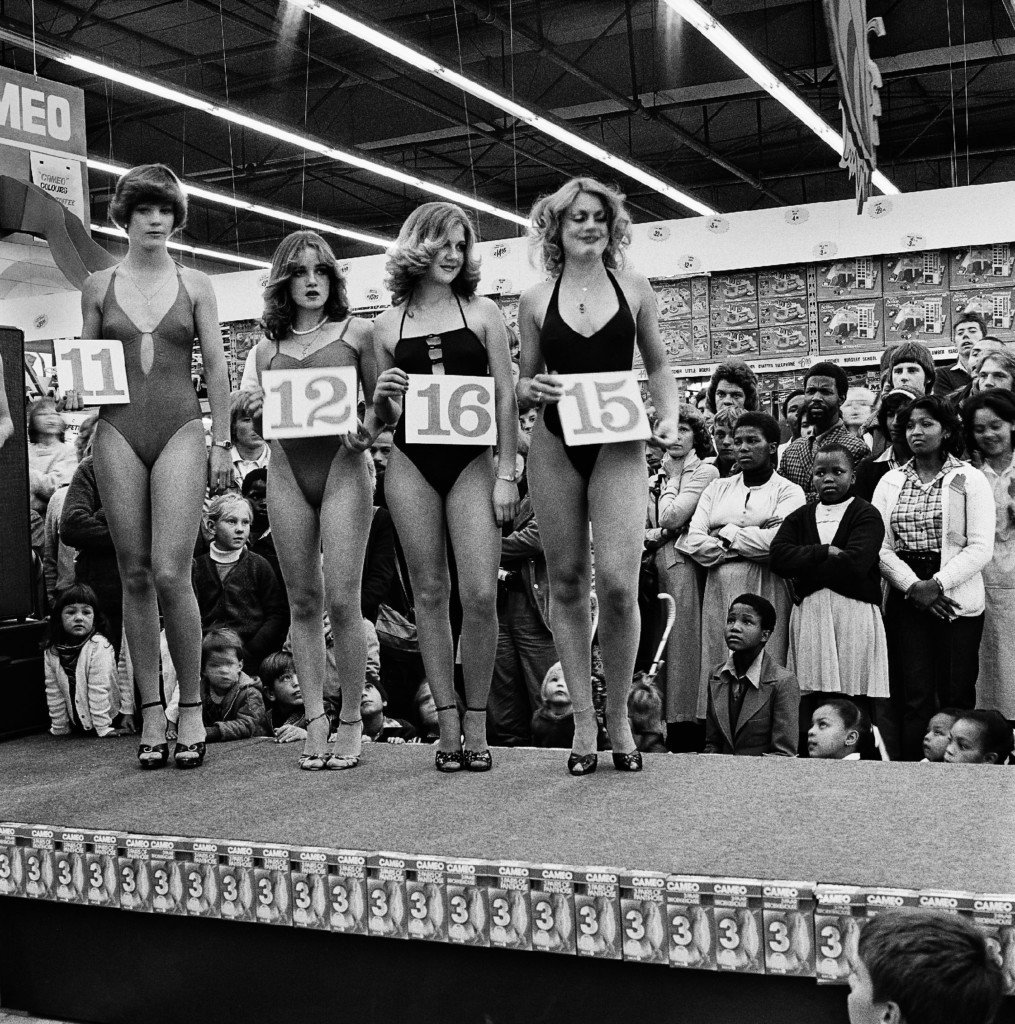
This legendary South African photographer has been described as South Africa’s ‘visual conscience’ and is known particularly for his documentation of the cruelties, absurdities and everyday destruction of dignity that was the apartheid system. During the Apartheid-era Goldblatt shot primarily in black and white, saying that “during those years color seemed too sweet a medium to express the anger, disgust and fear that apartheid inspired,” although nowadays he has expanded into shooting in colour as well.
Blessing Ngobeni
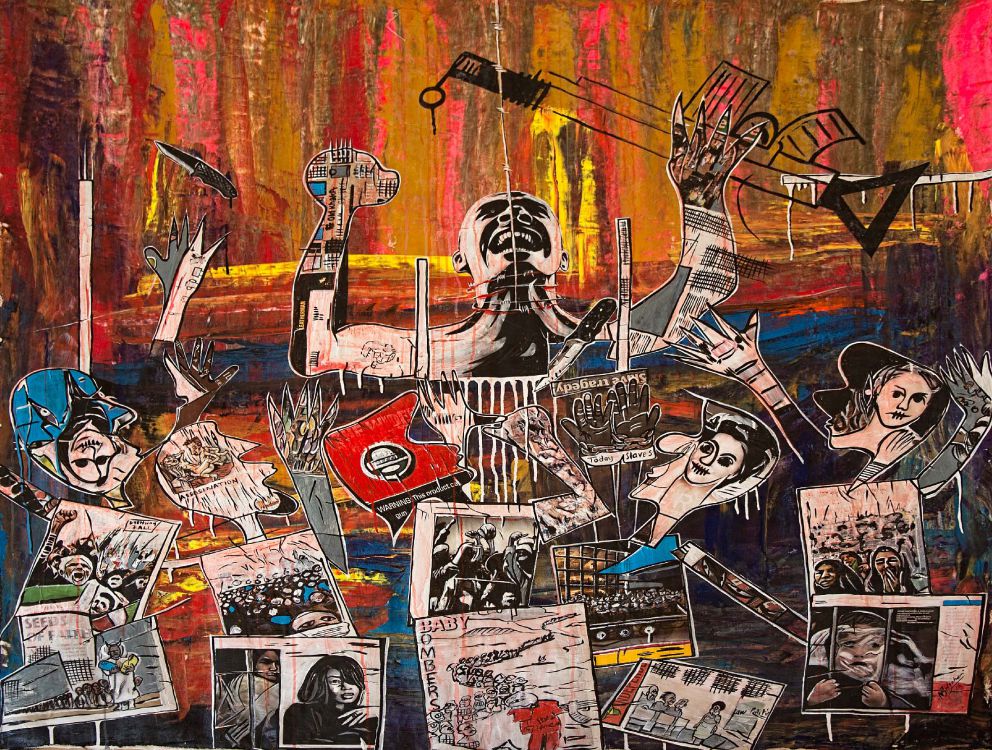
Joburg-based artist Blessing Ngobeni’s striking surreal paintings explore “a mindset of a society influenced by power and its impact on individuals”. His huge canvases are both stimulating and occasionally terrifying, confronting the viewer with symbols of slavery, corruption, addiction, loss, violence, greed, lust and exploitation and providing plenty of room for a variety of interpretations.
Robert Hodgins
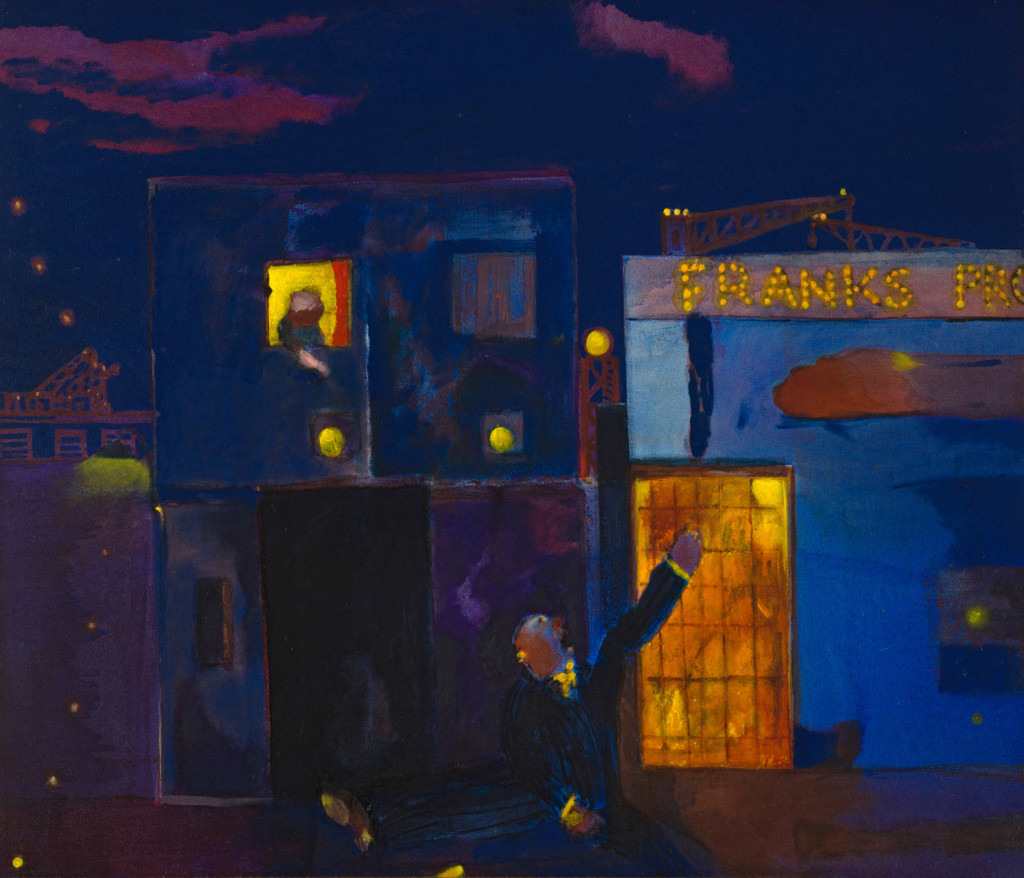
Robert Hodgins is often considered a contemporary artist due to his late blooming career and long life (Hodgins died in 2010 aged 89). While Hodgins staged his first exhibition in Joburg in 1956, it was in the late 1980s and early 1990s (after having retired from a career in journalism and academia) that he began to make a serious impact on the South African art world. Known for his scathing studies of powerful men in suits or military fatigues, Hodgins late career works are now hugely popular among collectors, with some having sold for more than R1 000 000 at auction.
Mohau Modisakeng
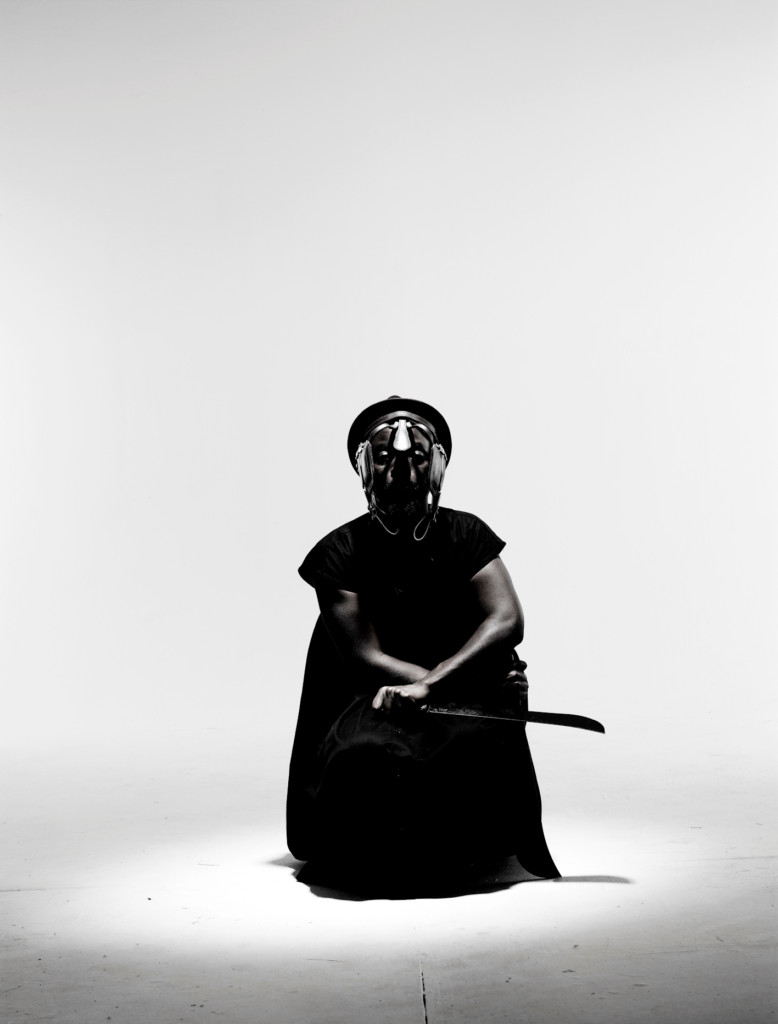
A trained sculptor turned photographer, Mohau Modisakeng was the 2016 winner of the prestigious Standard Bank Young Artist award and his recent installation at the Venice Biennale saw international publications such as The New Yorker hail the Soweto-born artist as one of the most exciting new stars of the African art scene. Modisakeng is particularly known for his powerful and thought-provoking self-portraits in which he boldly engages with the lasting economic, political, spiritual and social impact that South Africa’s colonial and Apartheid past has had on black people and the black collective memory.
Wayne Barker

Often considered the wild child of the local art scene, Barker is known for his anarchic approach to the politics of everyday South African life and popular culture. Using bold colour, collage, neon and found objects to reconfigure iconic images in his paintings, Barker has positioned himself as one of South Africa’s most prolific iconoclasts.
Kudzanai Chiurai
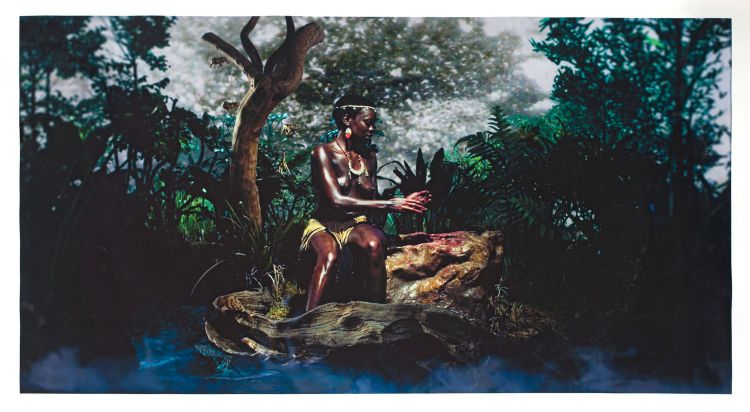
Zimbabwe-born photographer, artist, activist and cultural philosopher Kudzanai Chiurai grapples with the intricacies of colonialism and its effects on modern African nations in his thought-provoking and theatrically posed montages. Chiurai studied fine art at the University of Pretoria, and although he has spent much of his career living in South Africa, his work and personal activism is still very much concerned with contemporary Zimbabwe.
Hasan and Husain Essop
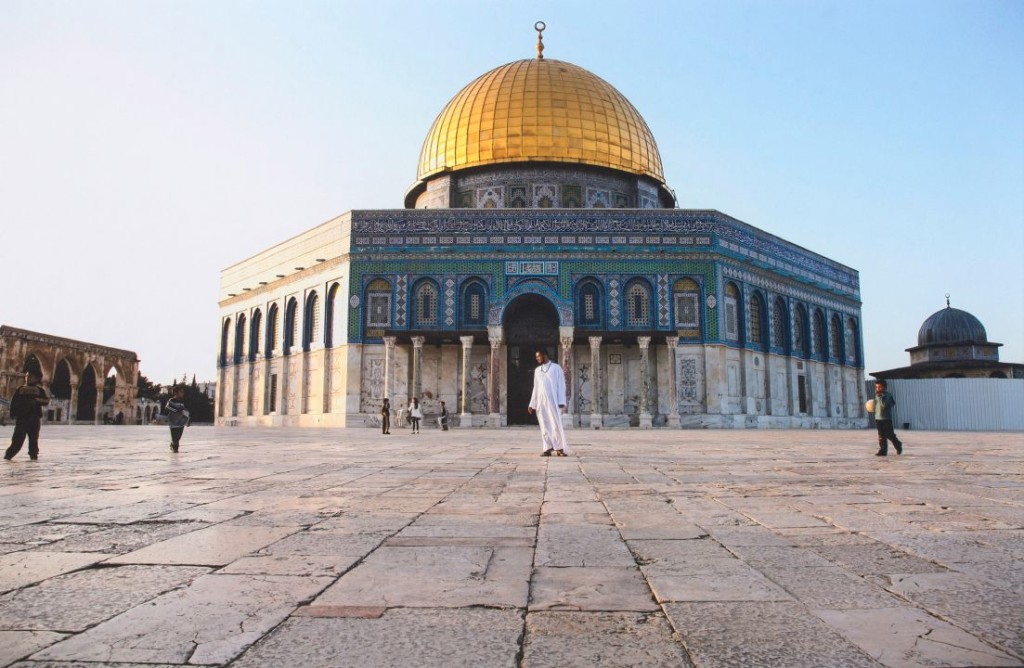
Twin brothers Hasan and Husain Essop’s clever and engrossing photos question Muslim stereotypes and critically engage with the climate of fear and uncertainty that currently dominates global political discourse, while also paying homage to the critical importance of their faith in everyday life. In their intricately staged photos, which are a characteristic blend of photography, performance and installation, the twins take everyday Cape Town scenes and transform them into a platform for examining the complex problems of contemporary South Africa society. The pair have also taken their cameras abroad, most notably in their 2002 series (pictured) where they travelled to religious sites in Israel, Holland, Senegal, Germany and Saudi Arabia.
Ayanda Mabulu
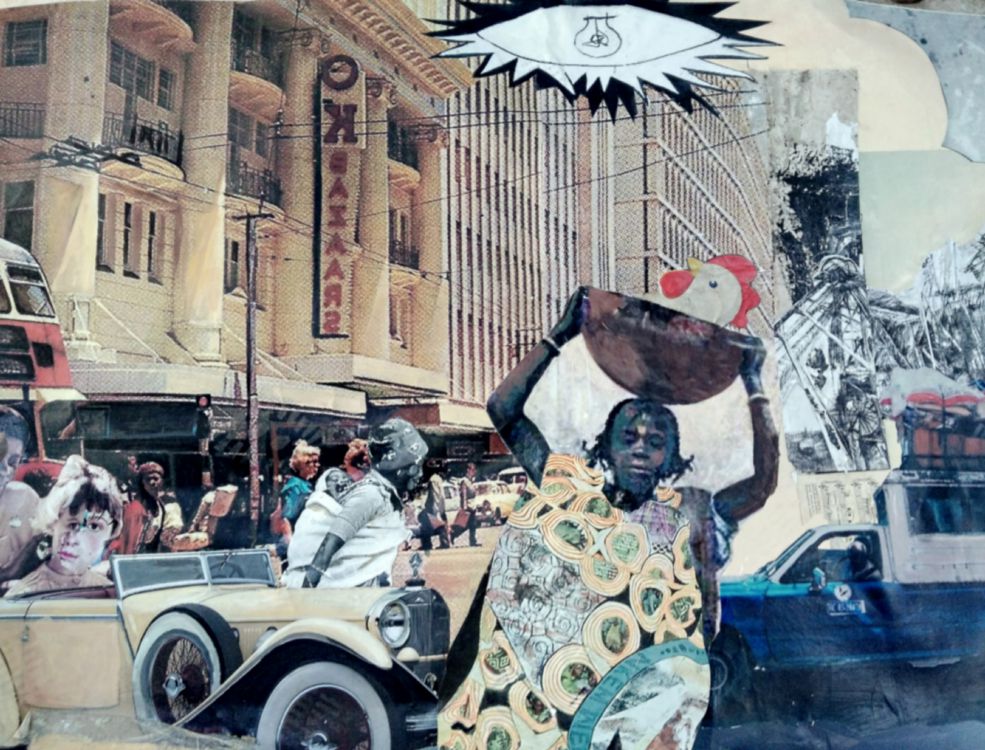
Mabulu is without a doubt one of South Africa’s most controversial artists, and not a year goes past without one of his more graphic and provocative political paintings becoming the subject of heated discussions about censorship and artistic expression. Vehemently anti-establishment, Mabulu’s more notorious works have seen him landing in very hot water for depicting various members (both living and dead) of the South African political elite in sexually explicit positions. Mabulu’s work isn’t only X-rated however, the artist also continues to produce tamer and more gently nuanced collages that speak to the disparities and hypocrisies prevalent in South African society.